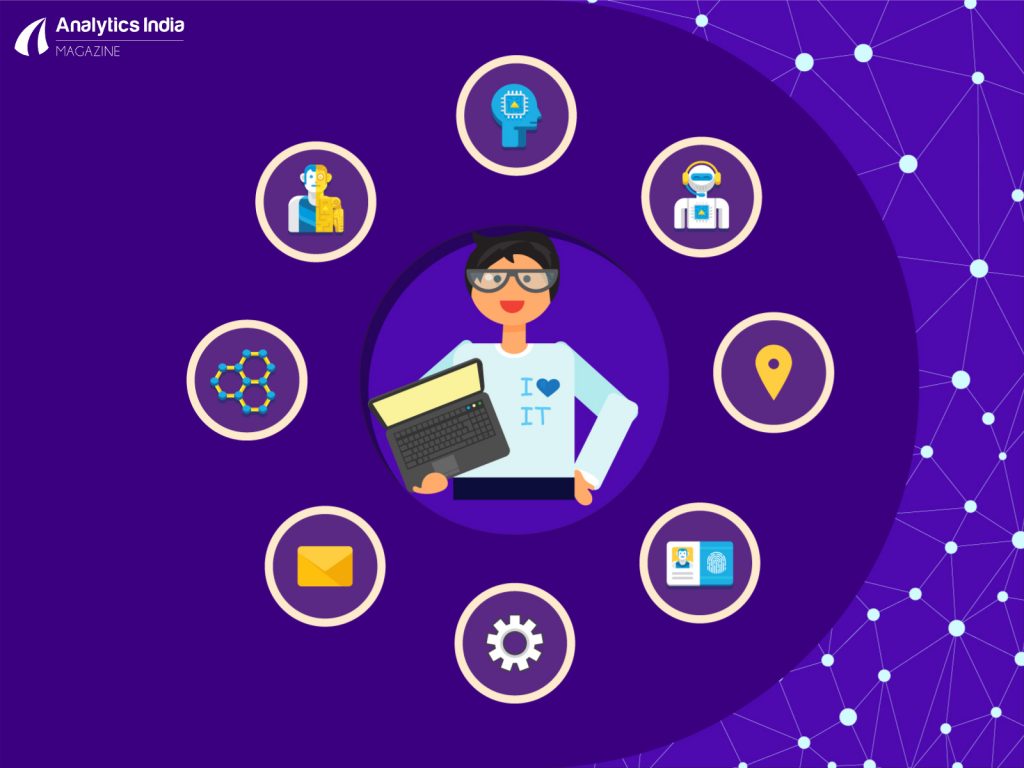What’s in a name, a ‘Rose’ with any other name would smell the same – holds good for the terms AI, ML and Data Sciences which are being synonymously used in the industry today. Years ago, EMC named it Data Science, IBM called it Big Data Analytics and Google christened it as AI/ML. Essentially the underlying objective and concept are the same across all three terms or “In things” in the industry today.
A look back at how it all started, post World War II – a group of enthusiasts conceptualized and wanted to create an Artificial Brain and they called themselves – AI Guys. Then within the group, a subset started thinking that the brain does a lot more than just working on Data and Intelligence derived from data. It had limitations that needed quantifiable data points.
“Who will I fall in love with next?” This is not an answerable question based on data perhaps!! “But does this prospect suit the job?” is an answerable question based on the data. The subgroup then fixed their objectives to Data-Driven Intelligence only and called their field ML (Machine Learning).
Come the 2000s, Data-Driven Intelligence & ML started working on larger volumes of Data and this data was called ‘Big Data’. Over the last 5 years, the definition of data that can be analyzed has changed. From Numbers & Alphanumeric to Speech, Video, Image, Text, and Audio leading to the term Data Science.
Today, in the industry today, all these are used as synonyms
INSOFE has designed one comprehensive program that rules them all!
Encompassing all the needs of AI, ML and Data Sciences, the PGP @ INSOFE has been designed to provide complete and comprehensive knowledge on understanding Data, using Programming Languages to juggle around with Data, Visualizing and Reporting in addition to a domain-specific specialization.
The PGP course can help freshers and domain experts in different ways, but the fundamental approach is the same. One starts with the fundamentals of Statistics where the foundations of relevant concepts like measures of Central Tendency to linear regression to logistic regression are dealt with in detail. The next part of the course is to introduce the participant to languages like the R & Python interaction module.
It becomes interesting when the participant is introduced to algorithms, identification & Selection of Data Sets, applying principles of machine learning to arrive at an output followed by analysis and interpretation of the output. The entire cycle from the selection of Data to the Interpretation of Output is taught in the Machine Learning Module. The participant is given an opportunity to understand Machine Learning on a scale with large volumes of data as an extension to rudimentary Machine Learning.
Then the course goes deeper into the Texts & AI landscape. One gets to wander in the world of Neural networks, Deep Neural Networks, Optimization Engines, Supply Chain Problems and much more.
Who wants a cynic who knows the price of everything and the value of nothing? As a Data Scientist, the objective is to provide value and help the stakeholder understand in the simplest possible way. For this, the visualization of results is very crucial. One might apply design thinking principles like storytelling or maybe reporting to present the results of the analysis to the business. The course helps the participant in assimilating the “horses for the courses” method of reporting and interpretation.
At this juncture, for a fresher, there could be a temporary pause. The time becomes right for a fresher after completion of the modules to get into the market, look out for some good organizations and projects to work on – maybe 6 months to one year. This working time gives an understanding and inclination towards a certain industry and a value chain. This helps in zeroing in on specialization and walk back to the mentor group and gain specialized knowledge.
For a Domain Expert, the snooze time is not necessary. For example, a domain expert in Supply Chain in an FMCG Industry can opt for the specialization curriculum and eventually become an SME in Supply Chain Analytics. The same being applicable for professionals from healthcare, finance & banking also. If the interest lies in research, then a profound work on Advanced AI & ML can be of great help.
What INSOFE explains to any PGP course enthusiast is more practical than a lofty promise; right foundations, specialization, real-time experience and good life skills. In essence, all that you need to make one a most sought-after Data Scientists in the industry.
We believe that if you chase excellence, riches will follow. The institute is open to passionate participants. Extremely qualified professors, hands-on work, internships, scholarships are pillars of the postgraduate program. Commitment to excellence, burning desire to excel in technology are the building blocks that prospective INSOFEANS should be made of.
























